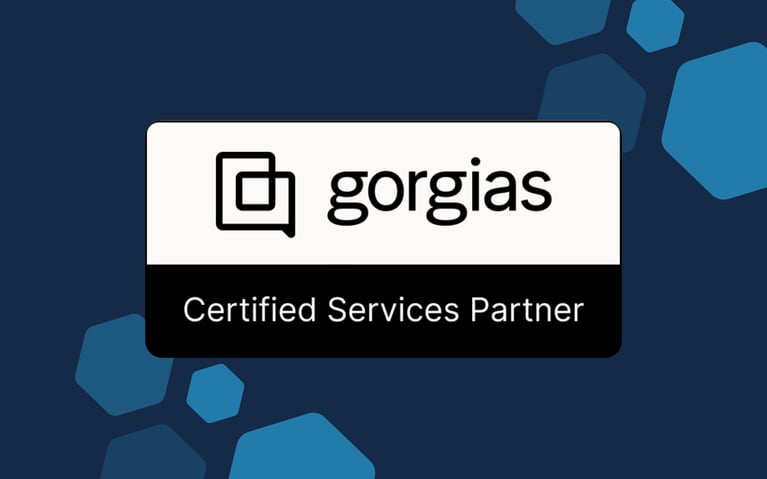Today’s consumers expect a frictionless omnichannel experience, making a cohesive end-to-end journey critical to retail growth and success. This comprehensive approach spans marketing, selling and fulfillment, aspiring to harmonize stages and ensure a seamless and consistent customer experience, regardless of platform or interaction. However, the time, technology, costs and people required to implement a true omnichannel ecommerce strategy can be a barrier for brands – and for many, the solution is utilizing strategic partners and their expertise and resources.
Strategic partners provide the scalability and flexibility needed to adapt and focus on the heart of the business. This article will cover what a strategic partner is, how they benefit ecommerce brands and how to find strategic partners that best serve your needs.
What is a strategic partner?
A strategic partner is more than just a business associate – it's a collaborative ally chosen for its ability to contribute to long-term goals and mutual success. Unlike transactional relationships, a strategic partner is deeply involved in a business's core strategies and objectives. This alliance involves shared risks, resources and a commitment to achieving common goals. A high level of trust, open communication and a shared vision for innovation and growth characterize a strategic partner. Ultimately, this partnership is about achieving short-term gains and building a resilient and synergistic relationship that drives both entities toward success.
In ecommerce, a strategic partner plays a pivotal role by aligning with a business to enhance its capabilities, resources and market reach. Whether through collaborative marketing efforts, shared technology solutions or logistics and fulfillment support, a strategic partner contributes to the overall growth and success of the ecommerce venture. This alliance is not merely transactional – it involves a deeper integration, where both parties work together to leverage strengths and navigate challenges. A strategic ecommerce partner can bring expertise, innovation and complementary assets, forging a strong business relationship that fosters growth in a competitive industry.
How a strategic partner supports omnichannel ecommerce brands
A strategic partner strengthens omnichannel ecommerce brands by providing seamless integrations and services across various channels, ensuring a unified and cohesive customer experience. Partners can also offer financial and logistical support that empowers brands to expand their reach and adapt to evolving consumer expectations across both online and offline channels. Ultimately, a strategic partnership should provide a synchronized and versatile approach to omnichannel ecommerce, driving growth and success.
How the customer journey fits into strategic partnerships
The customer journey spans several stages. This includes pre-purchase, purchase and post-purchase. Another way to look at it is the operational processes of marketing, selling and fulfillment and how they fit into the end-to-end customer experience. Each stage utilizes several strategies. For example, in the pre-purchase phase, marketing operations actively target audiences with personalized campaigns. In the post-purchase phase, brands must fulfill orders by picking, packing and shipping.
However, there is more to it: Brands must strategize every potential interaction within these stages. They may need to implement a chatbot to engage and convert customers or use OMS/WMS software that provides customers with notifications or updates about the status of their orders. Trying to take on every task and optimize every interaction pulls time, energy, innovation and other resources away from core business. This is why many businesses develop strategic partnerships – to handle processes they don’t want to, allowing them to focus their energy back where it helps them most. It’s also a way to tap into expertise they might not yet have.
Here are some examples of potential strategic partnerships across the stages:
Marketing
A strategic omnichannel marketing partner helps amplify brand visibility and engagement, reaching diverse audiences across multiple platforms through collaborative marketing efforts. A few examples of strategic marketing partners are:
- Email marketing platforms: Integration with email marketing tools allows retailers to enhance communication, segmentation and personalized campaigns, driving engagement and conversion.
- SEO specialist: An SEO strategic partner is dedicated to optimizing a website's visibility on search engines. They conduct comprehensive keyword research, implement on-page optimizations, build quality backlinks and address technical aspects to improve the site's performance and ranking. A strategic partner also develops content strategies, monitors analytics for insights and adapts to search engine algorithm changes to ensure sustained and effective SEO results over time. Their goal is to enhance online visibility, drive organic traffic and improve a website's overall search engine ranking.
- Data analytics provider: Partnerships with analytics platforms enable ecommerce retailers to gather insights into customer preferences, optimizing marketing strategies for increased sales.
- Content agency: A strategic ecommerce content partner collaborates closely with a brand to create compelling and tailored content that aligns with the brand's identity and resonates with its target audience. This includes developing product descriptions, blog posts and multimedia content that not only showcases products but also tells a cohesive and engaging brand story. The content partner understands the ecommerce landscape, utilizes SEO strategies for improved discoverability and aligns content with the customer journey. By consistently delivering high-quality and relevant content, the strategic content partner contributes to increased brand visibility, customer engagement and ultimately drives sales.
Selling
Strategic partners in ecommerce sales play key roles in expanding reach, optimizing operations, and enhancing the overall customer experience, ultimately contributing to increased sales and business success. Some examples of selling partners include:
- Marketplace management: A partner or solution for ecommerce marketplace management oversees and optimizes the presence and performance of a brand's products on third-party online marketplaces. This includes tasks such as product listing optimization, inventory management, pricing strategy, customer service and performance monitoring. The goal is to maximize visibility, sales and customer satisfaction across various online platforms like Amazon, eBay and Walmart. Efficient marketplace management is essential for ecommerce businesses to leverage the reach and potential of external marketplaces and drive overall sales growth. Additionally, a partner with innovative tech can do things like automate or allow you to create bulk marketplace listings.
- Ecommerce consultants: Collaborating with consultants who specialize in e-commerce strategies provides expert guidance for business growth and increased sales.
- Payment gateways: Seamless integration with trusted payment gateways ensures secure transactions, fostering trust and encouraging sales.
- E-commerce Platforms: Selecting the right platform provides a robust foundation for online sales, offering features that enhance the shopping experience.
Fulfillment
Strategic partners can enhance the efficiency of order management, inventory tracking and fulfillment processes, streamlining operations for an omnichannel approach. Strategic fulfillment partners include:
- Third-party logistics service: A 3PL provider serves as a strategic ecommerce fulfillment partner by managing various aspects of the supply chain, including warehousing, inventory management, order fulfillment, shipping and returns management. They integrate seamlessly with the ecommerce platform, receiving orders directly and processing them efficiently. With their expertise and resources, 3PLs optimize fulfillment processes, ensuring accurate and timely delivery to customers. By outsourcing these functions to a 3PL, ecommerce businesses can focus on core activities like product development and marketing, while benefiting from cost savings, scalability and improved customer satisfaction.
- OMS and WMS software: An OMS (Order Management System) and WMS (Warehouse Management System) act as strategic partners by seamlessly coordinating and optimizing the ecommerce supply chain. The OMS centralizes order processing, managing orders from placement to delivery across multiple channels, while the WMS optimizes warehouse operations, ensuring efficient inventory management and order fulfillment. Together, they provide real-time visibility and control over inventory and orders, enhancing operational efficiency, accuracy and customer satisfaction. This strategic partnership enables ecommerce businesses to scale effectively, adapt to market demands and drive overall growth and success.
The benefits of strategic partnerships in ecommerce
The right strategic partnerships are of high value. It helps businesses provide a consistent omnichannel experience. Optimal partners will thoroughly immerse themselves in your brand’s journey and use their expertise to shape strategies, aiming to help you provide the best end-to-end customer experience possible. They’ll also be able to scale to meet varying market demands, giving you the agility and flexibility you need.
How to choose your strategic partners
Strategic partners come in many forms, and you can create partnerships that are more siloed or look for a more consolidated solution – a partnership that supports your ecommerce business end to end. Look for partners that allow you to manage operations and processes better. They should feature innovative solutions and technology. They should also tailor and scale to your unique needs and prove themselves cost-efficient, giving you back critical resources like time and capital. Most important is their investment and communication with you. They’re accessible and consistently help you meet and exceed your goals.
Let Cart.com be your strategic partner
Embark on a transformative journey with us as your strategic ecommerce partner. From seamless order processing to innovative marketing strategies, we're here to elevate your brand to new heights. Let's unlock untapped potential, captivate your audience and exceed your sales goals together. To learn more about our unified commerce solutions, contact the team at Cart.com today.
Subscribe to our emails for the latest industry insights!
By entering your email, you agree to receive marketing emails from Cart.com






